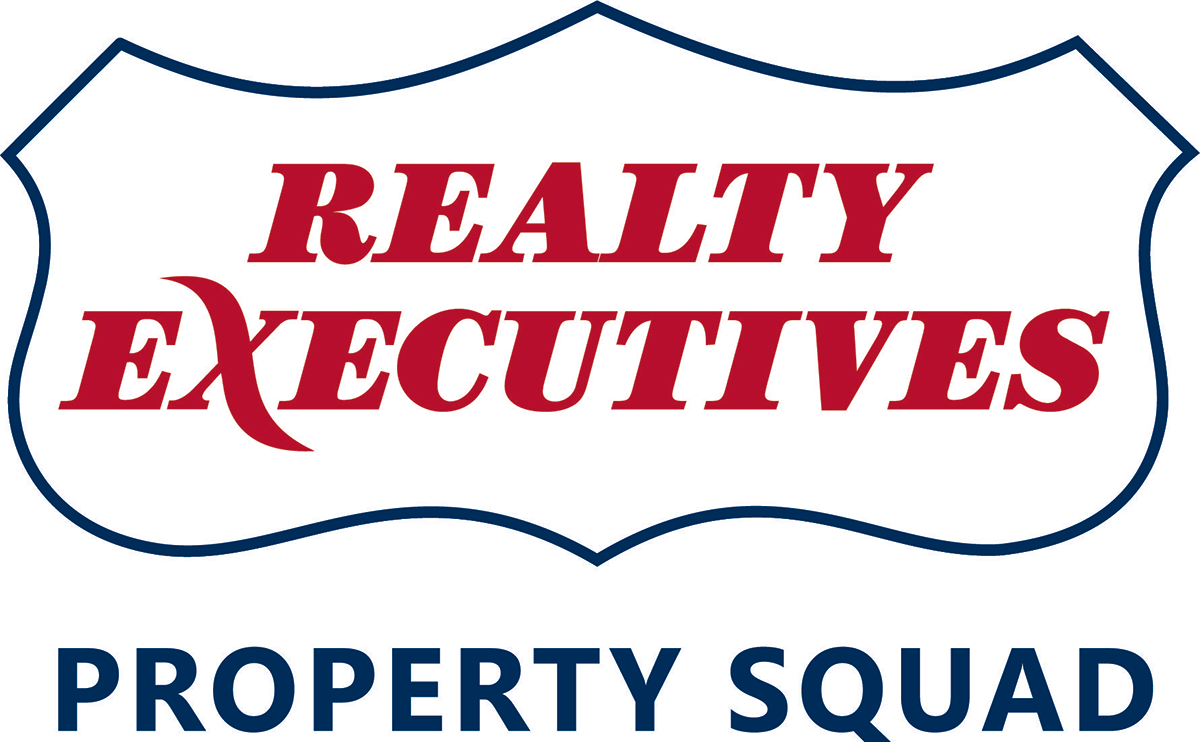Selling a house with a mortgage can seem like navigating through a maze, but with the right strategy, it transforms into a streamlined path leading directly to your goals. This process involves more than just finding a buyer; it requires a keen understanding of financial implications, the importance of timing, and a clear communication channel with your lender. Whether you’re upsizing, downsizing, or simply looking for a change, mastering the art of selling your mortgaged property empowers you to move forward confidently, securing the best possible outcome for your financial future.

Setting the Stage for Mortgaged Homeowners
Stepping into the realm of selling a home brings its unique set of challenges and considerations, especially when a mortgage is part of the picture. It’s not just about making your home appealing to potential buyers; it involves understanding the intricate relationship between your mortgage details and the selling process.
Gaining a clear picture of your mortgage balance is paramount, ensuring that the proceeds from the sale can cover what you owe. Equally crucial is maintaining open communication with your lender, as this relationship can significantly influence the transition’s smoothness.
Calculating your home’s equity is another essential step, offering insight into your financial standing and influencing how you price your home. Setting the right price becomes a balancing act, necessitating a thorough analysis of market trends, your home’s unique features, and, importantly, the remaining mortgage amount.
With the right approach, selling a home with a mortgage can be navigated successfully. Understanding your mortgage balance, effectively communicating with your lender, and accurately evaluating your home’s equity are key steps that pave the way. This strategic preparation empowers homeowners to tackle the complexities of the selling process, turning challenges into opportunities for a positive transition.
Understanding Your Mortgage Balance
Diving into the process of selling your home requires a clear grasp of your current mortgage balance. It’s a critical first step that lays the groundwork for a successful sale. Your mortgage balance isn’t just a number; it’s a figure that directly impacts how you approach the market and price your home. Knowing exactly what you owe is essential, as the sale proceeds need to cover this amount to clear your debt.
Start by contacting your mortgage lender to request a payoff quote. This quote is more detailed than the balance shown on your last statement, as it includes any interest that will accrue up until the sale of the house. Understanding these numbers is vital for setting a realistic price on your home and for making informed decisions throughout the selling process.
Moreover, being aware of your mortgage balance can help you assess whether additional steps, such as a short sale, might be necessary if the market value of your home is less than the amount owed. It also prepares you for discussions with potential buyers and real estate professionals, ensuring you can negotiate with confidence and clarity.
In essence, a thorough understanding of your mortgage balance not only informs your strategy but also empowers you to navigate the sale with a sense of control and foresight. It’s about laying a transparent financial foundation from which to progress, making informed decisions that align with your goals and financial well-being.
Communicating with Your Lender
As you embark on the path to selling your home, establishing open and early communication with your mortgage lender is a pivotal step. This engagement is crucial for several reasons, not least because it can uncover any potential hurdles early in the process, such as prepayment penalties or specific processes required by the lender for selling a mortgaged property.
Initiating this dialogue involves informing your lender of your intention to sell and discussing the steps involved in the mortgage payoff process. This conversation can provide valuable insights into any fees or penalties that might affect the final payoff amount. Some lenders impose prepayment penalties if you pay off your mortgage early, which can impact your financial planning for the sale. By understanding these details upfront, you can strategize effectively to minimize any financial surprises.
Furthermore, your lender can offer guidance on how to handle the mortgage payoff transaction once your home is sold. This includes the logistics of transferring funds and ensuring that the mortgage is fully paid off, releasing you from any further obligations. In cases where the sale price does not cover the mortgage balance, your lender can also advise on the options available to you, such as a short sale agreement.
Maintaining transparent and proactive communication with your lender not only smoothens the selling process but also ensures that you are fully informed of your rights and responsibilities. It sets the stage for a sale that is as efficient and straightforward as possible, allowing you to focus on maximizing your home’s market potential.
Evaluating Your Home's Equity
Understanding the equity in your home is a crucial aspect of preparing to sell, especially when a mortgage is involved. Equity represents the difference between the market value of your home and the remaining balance of your mortgage. This figure is pivotal for homeowners, as it influences not only the pricing strategy for the sale but also the financial outcomes post-sale.
To calculate your home’s equity, start by determining the current market value of your property. This can be achieved through a professional appraisal or by analyzing recent sales of similar homes in your neighborhood. Once you have a clear market value, subtract the outstanding balance of your mortgage from this amount. The result is the equity you have in your home.
Positive equity means that the value of your home exceeds the amount you owe on your mortgage, placing you in a favorable position to cover the mortgage and potentially profit from the sale. Conversely, negative equity, where you owe more on your mortgage than your home’s worth, presents a challenging scenario. It requires careful planning and potentially exploring options like a short sale, where the lender agrees to accept less than the owed mortgage balance as payment in full.
The amount of equity you have also impacts your next steps in the housing market. For those with significant positive equity, it opens doors to larger down payments on a next home or investing in other opportunities. On the other hand, negative equity may necessitate exploring alternative housing solutions or delaying the sale until market conditions improve.
Assessing your home’s equity is a fundamental step in the selling process. It provides a realistic outlook on what to expect from the sale, informing decisions on pricing, negotiations, and future housing plans, ensuring you navigate the sale with informed confidence.
Setting the Right Price
Choosing the correct listing price for your home is more than a strategic decision—it’s an art that balances market conditions, your home’s unique features, and the realities of your mortgage. Setting the right price is crucial for attracting potential buyers without leaving money on the table or prolonging the sale process.
To start, conduct a comprehensive market analysis. This involves looking at comparable home sales in your area, understanding current market trends, and assessing how your home stacks up in terms of size, condition, and amenities. It’s also essential to consider the impact of your mortgage, especially if you’re aiming to cover the remaining balance and, ideally, secure some equity from the sale.
Pricing your home competitively requires a delicate balance. Price it too high, and you risk alienating potential buyers, leading to a stagnant listing. Price it too low, and you might sell quickly but at the expense of losing valuable equity. The goal is to find a sweet spot where the price reflects your home’s worth, appeals to buyers, and aligns with your financial objectives, including settling your mortgage.
Adjusting your expectations might be necessary, especially in a fluctuating market. Being open to negotiation and flexible with your pricing strategy can make the difference between a successful sale and a challenging one. Remember, the initial listing price is not set in stone; it can be adjusted based on market feedback and interest from potential buyers.
Ultimately, setting the right price for your mortgaged home is about making an informed decision that considers all these factors. It’s a step that sets the tone for the entire selling process, aiming to create a win-win scenario for both you and the buyer.
Marketing Your Mortgaged Home
Effective marketing is key to selling your home, especially when navigating the complexities of a mortgage. A well-thought-out marketing plan ensures that your property reaches potential buyers, highlights its best features, and communicates value, all while considering the financial intricacies of your situation.
First, consider the unique selling points of your home. What makes it stand out? Whether it’s a modern kitchen, a spacious backyard, or proximity to sought-after schools, these features should be at the forefront of your marketing efforts. High-quality, professional photographs and virtual tours can showcase these aspects, making your listing more appealing to prospective buyers.
Leveraging online platforms is essential in today’s market. Most homebuyers start their search online, so ensuring your listing is visible on major real estate websites, as well as social media platforms, can significantly expand your reach. An engaging and detailed listing description that highlights your home’s features and benefits can capture the interest of potential buyers.
A real estate agent with experience in selling homes with mortgages can be invaluable. They understand how to navigate the financial discussions and can target marketing efforts to attract buyers who are ready and able to deal with the specifics of buying a mortgaged property. They can also provide insights into the current market trends and buyer expectations, allowing you to adjust your marketing strategy as needed.
Staging your home can also make a significant difference. A well-staged home appears more inviting and can help buyers envision themselves living there. Even simple adjustments, such as decluttering, painting in neutral colors, and fixing minor repairs, can enhance your home’s appeal.
In summary, marketing your mortgaged home effectively involves a combination of showcasing its best features, utilizing online and traditional platforms for visibility, and possibly enlisting the help of a professional. By creating a compelling presentation of your home, you increase the chances of a quick and profitable sale.
Navigating Offers and Negotiations
Once your home hits the market and attracts interest, the next critical phase is navigating offers and negotiations. This stage is where the groundwork you’ve laid—in understanding your mortgage balance, setting the right price, and marketing your home—comes into play, helping you to evaluate offers not just on the price but on terms that might affect your ability to settle your mortgage.
When you receive an offer, assess it comprehensively. The highest offer isn’t always the best if it comes with contingencies that could delay the sale or fall through entirely, affecting your financial planning. Buyers might propose conditions such as waiting for their home to sell or requesting repairs after an inspection. While some contingencies are common, weigh each offer’s merits, considering how they align with your timeline and financial needs.
Negotiation is both an art and a science, requiring a balance between achieving your financial goals and remaining flexible to market realities. It’s crucial to keep your mortgage considerations in mind during this process. If you’re close to paying off your mortgage, you might have more flexibility in accepting a lower offer that guarantees a quicker sale. Conversely, if you have a significant mortgage balance, your negotiation strategies might lean towards maximizing the sale price to cover the mortgage and potentially yield equity.
Remember, negotiations can include more than just the sale price. Terms like closing dates, who covers certain closing costs, and items to be included or excluded from the sale (like appliances or furniture) can all be negotiated to meet your needs while making the deal more attractive to the buyer.
Effective negotiation requires clear communication, understanding of your bottom line, and, sometimes, patience. With a solid strategy, you can navigate offers and negotiations in a way that respects your financial situation, meets buyer expectations, and moves you closer to a successful sale.
Closing the Sale and Handling the Mortgage Payoff
The final stage in selling your home involves closing the sale and efficiently managing the mortgage payoff. This critical phase seals the deal, transferring ownership to the buyer and ensuring your mortgage is satisfactorily resolved. Understanding and preparing for the closing process can help ensure a smooth transition and prevent any last-minute hurdles.
During closing, several important steps must be completed. These include finalizing the closing documents, which outline the sale’s terms, and settling closing costs, which are fees associated with the sale transaction. Part of these costs may go towards paying off the remaining balance of your mortgage. It’s crucial to have a clear understanding from your lender about the exact payoff amount, which includes any interest accrued up until the closing date, to avoid any discrepancies.
The role of an escrow or closing agent becomes pivotal at this juncture. They oversee the transaction, ensuring that all documents are in order, funds are appropriately allocated, and the transfer of property is legally recorded. One of their responsibilities is to use the sale proceeds to pay off your mortgage directly to the lender. After the mortgage is paid off, any remaining sale proceeds are disbursed to you, marking the completion of the sale process.
It’s essential to follow up with your lender after the closing to confirm that the mortgage has been fully paid off and to request a release of lien on the property. This document is proof that you have fulfilled your mortgage obligations and that the lien on your property has been removed.
Closing the sale of your mortgaged home is a multifaceted process that requires attention to detail and coordination with various parties. By staying informed and proactive, you can navigate this final step effectively, ensuring a successful end to your home-selling journey and the start of a new chapter.
Choosing the Right Real Estate Agent
Selecting the right real estate agent is a crucial step in the process of selling your home, particularly when navigating the complexities of a mortgage. A competent agent can significantly influence the speed and success of your sale, offering expertise in market trends, pricing strategies, and negotiation skills. Here’s how to ensure you partner with the best professional for your needs.
Start by researching potential agents with experience in your local market. This local expertise is invaluable, as it means they’ll have a deep understanding of market dynamics, buyer preferences, and effective marketing strategies for your area. Look for agents who have successfully closed sales for homes similar to yours, especially those with experience handling mortgaged properties.
Interviewing multiple candidates is a crucial step. During these conversations, inquire about their experience, sales strategy, and communication style. Ask for references and success stories, particularly in scenarios similar to yours. This will give you insight into their professionalism, reliability, and ability to navigate complex sales.
A strong marketing plan is essential for attracting the right buyers. Discuss with potential agents their strategy for marketing your home, including digital marketing efforts, staging services, and professional photography. Their approach should align with your goals and the unique selling points of your property.
Communication is key throughout the selling process. Choose an agent who demonstrates clear, consistent communication habits and shows a willingness to keep you informed every step of the way. You want someone who will actively engage with you, providing updates, feedback from showings, and guidance on navigating offers and negotiations.
Finally, consider the agent’s commission structure and any additional fees. While cost shouldn’t be the sole determining factor, it’s important to understand how your agent is compensated and ensure their fee structure is reasonable and transparent.
Choosing the right real estate agent is about finding a partner who is committed to achieving the best possible outcome for your sale. With the right professional by your side, you can navigate the sale of your mortgaged home with confidence and success.
Sealing Your Success: Next Steps in Your Home Selling Journey
Reflecting on the journey of selling a house with a mortgage, it’s clear that success lies in thoughtful preparation, strategic decision-making, and the right partnerships. From grasping the nuances of your mortgage balance to mastering negotiations and closing the deal, each step is crucial for a smooth and favorable sale. As you move forward, remember that you’re not alone in this process.
When you’re ready to take the next step towards selling your home, seeking expert guidance can make all the difference. Whether it’s understanding the current market, crafting a compelling marketing strategy, or navigating offers and closing efficiently, partnering with a knowledgeable and experienced real estate professional can provide the support you need.
If you’re preparing to sell your home and looking for guidance tailored to your unique situation, especially with a mortgage in the mix, don’t hesitate to reach out. Contact us to embark on a selling journey marked by expertise, dedication, and a commitment to achieving the best possible outcome for you. Together, we can turn the complexities of selling your mortgaged home into a success story.

